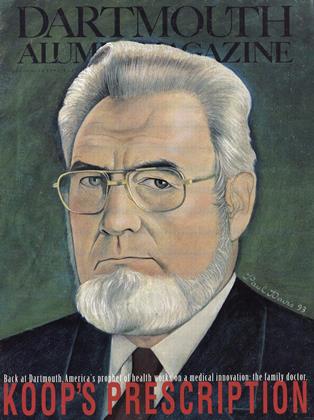Comrades, confidences, and candor.
EARLY ARCHETYPES Imaginative writers in the twentieth century seeking to develop the literary vocabulary and concepts to depict male homosexuality frequently draw on three prior models:
Plato, Symposium (fourth century before the Christian era; Nehamas and Woodruffs translation, published by Hackett 1989, has an introduction informed by recent scholarship.) Not only were sexual relations between males acceptable in ancient Greece, in some city-states the romantic relation between an adolescent and an older man was central to the youth's education as a citizen-soldier. Plato in particular saw delight in the beauty of a young man as the first step on the philosophical quest for the Form of the Good.
Walt Whitman, Song of Myself (1855) and Calamus (1860), available in their original version in Portable WaltWhitman (Viking-Penguin 1974) In contrast to Plato's aristocratic slant, Whitman saw the "manly love of comrades" (physical as well as emotional) as a class-erasing force both appropriate to a vigorous democracy and in touch with vital energies of nature.
Oscar Wilde, The Picture of DorianGray (1890; Penguin 1985) Wilde's life and writings provide the model for the association of homosexuality with careers in the arts, cultivated aesthetic taste, wit, and camp.
IN THE CLOSET Three excellent novels in which young men struggle to recognize their desires and establish stable relationships despite the hostility of society:E. M Forster, Maurice (1913-14; Norton 1971; also available on video as a sumptuous Merchant-Ivory film.) Two young men at Cambridge University fall in love, partly over Plato's Symposium. One later marries for the sake of maintaining his position as a country squire; the other, in a burst of Whitman-like class-levelling, establishes a lasting relationship with a gamekeeper.
Mary Renault, The Charioteer (1953; New English Library, 1990) Set in World War II hospitals, this subtle novel depicts well-brought-up young Englishmen making difficult choices among the Limited opportunities available to them. The title and moral themes derive from Plato.
James Baldwin, Giovanni's Room (Norton 1956) A young American tries to resist his own desires in the gay underground of 1950s Paris. Baldwin's only novel without black characters, the book is nonetheless informed by the author's situation as a member of two despised minorities.
COMING OUT Mart Crowley, TheBoys in the Band (1968; a Samuel French acting edition is available at theatre bookshops, and the faithful film version is available on CBS/Fox video.) The first play flatly about gays by a gay to reach the mainstream American theatre captures a moment of remarkable transition just before the Stonewall Riots inaugurated Gay Liberation. Its wit and frankness were welcomed at the time; now many of its characters look like self-hating stereotypes.
Allen Ginsberg, Collected Poems1947-1980 (Harper and Row, 1984) Ginsberg's "Howl" provoked an obscenity trial in the 19505. This major poet continued to write with great candor about the physiology and psychology of gay sex.
VARIETIES OF GAY EXPERIENCE Stephen Coote, editor, ThePenguin Book of Homosexual Verse (1983) A good selection of poems, some funny, some bitter, some romantic, from ancient Greece to the present.
Thom Gunn, The Man with NightSweats (Farrar Straus Giroux 1992) Gunn is a paradox, both tough and tender: an Englishman writing in the civilized style of Ben Jonson who draws on his life with leather-clad California motorcyclists. His latest volume contains some of the most moving poems on AIDS yet written.
Allen Barnett, The Body and itsDangers (St. Martins 1990) Six short stories, including two remarkable ones on AIDS.
Edmund White, The Faber Book ofGay Short Fiction (1991) Himself a distinguished gay novelist, White has put together the best anthology of gay short stories, a good introduction to fine younger writers such as David Leavitt, Dennis Cooper and Allan Gurganus.
Tony Kushner, Angels in America.The Millenium Approaches (Theatrical Communications Group 1993) In this Pulitzer Prize-winning play, AIDS, antiSemitism, wheeler-dealers and personal relationships collide to herald an apocalyptic transformation of America.
Saccio
 View Full Issue
View Full Issue
More From This Issue
-
 Cover Story
Cover StoryCan the Family Doctor Recover?
November 1993 By Charles Wheelan ’88 -
 Feature
FeatureTHE OLD MEN AND KC
November 1993 By Brooks Clark '78 -
 Feature
FeatureProphet of Limits
November 1993 By Suzanne Spencer '93 -
 Feature
FeatureChew Gum, See Dartmouth
November 1993 By Andrew Edison '91 -
 Article
ArticleDivers Notes & Observations
November 1993 By "E. Wheelock" -
 Class Notes
Class Notes1975
November 1993 By William Blake, W. Blake Winchell







